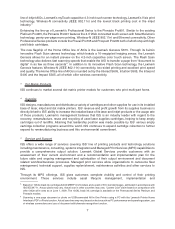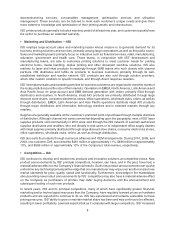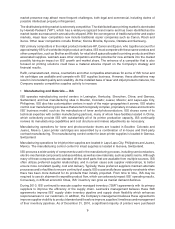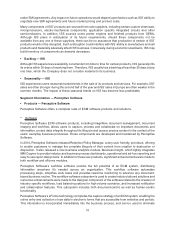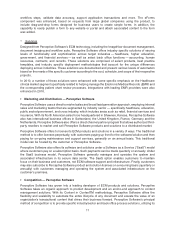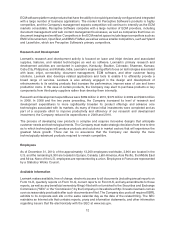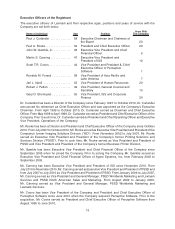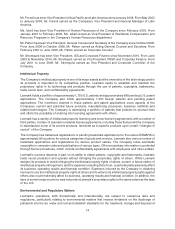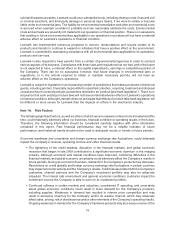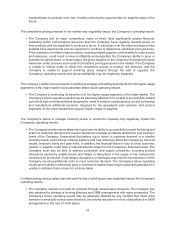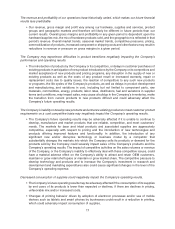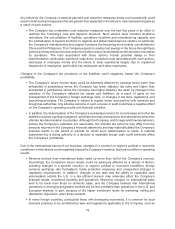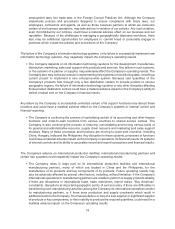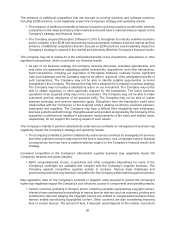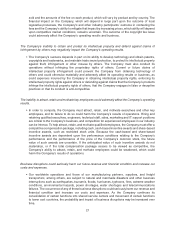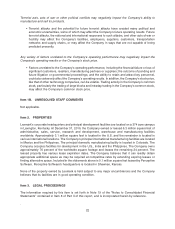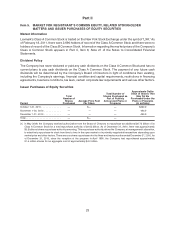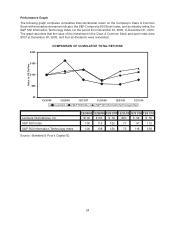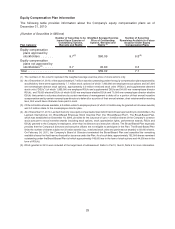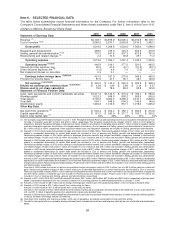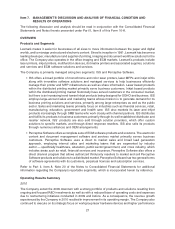Lexmark 2010 Annual Report Download - page 23
Download and view the complete annual report
Please find page 23 of the 2010 Lexmark annual report below. You can navigate through the pages in the report by either clicking on the pages listed below, or by using the keyword search tool below to find specific information within the annual report.The revenue and profitability of our operations have historically varied, which makes our future financial
results less predictable.
• Our revenue, gross margin and profit vary among our hardware, supplies and services, product
groups and geographic markets and therefore will likely be different in future periods than our
current results. Overall gross margins and profitability in any given period is dependent upon the
hardware/supplies mix, the mix of hardware products sold, and the geographic mix reflected in that
period’s revenue. Overall market trends, seasonal market trends, competitive pressures, pricing,
commoditization of products, increased component or shipping costs and other factors may result in
reductions in revenue or pressure on gross margins in a given period.
The Company may experience difficulties in product transitions negatively impacting the Company’s
performance and operating results.
• The introduction of products by the Company or its competitors, or delays in customer purchases of
existing products in anticipation of new product introductions by the Company or its competitors and
market acceptance of new products and pricing programs, any disruption in the supply of new or
existing products as well as the costs of any product recall or increased warranty, repair or
replacement costs due to quality issues, the reaction of competitors to any such new products
or programs, the life cycles of the Company’s products, as well as delays in product development
and manufacturing, and variations in cost, including but not limited to component parts, raw
materials, commodities, energy, products, labor rates, distributors, fuel and variations in supplier
terms and conditions, may impact sales, may cause a buildup in the Company’s inventories, make
the transition from current products to new products difficult and could adversely affect the
Company’s future operating results.
The Company’s inability to develop new products and enhance existing products to meet customer product
requirements on a cost competitive basis may negatively impact the Company’s operating results.
• The Company’s future operating results may be adversely affected if it is unable to continue to
develop, manufacture and market products that are reliable, competitive, and meet customers’
needs. The markets for laser and inkjet products and associated supplies are aggressively
competitive, especially with respect to pricing and the introduction of new technologies and
products offering improved features and functionality. In addition, the introduction of any
significant new and/or disruptive technology or business model by a competitor that
substantially changes the markets into which the Company sells its products or demand for the
products sold by the Company could severely impact sales of the Company’s products and the
Company’s operating results. The impact of competitive activities on the sales volumes or revenue
of the Company, or the Company’s inability to effectively deal with these competitive issues, could
have a material adverse effect on the Company’s ability to attract and retain OEM customers,
maintain or grow retail shelf space or maintain or grow market share. The competitive pressure to
develop technology and products and to increase the Company’s investment in research and
development and marketing expenditures also could cause significant changes in the level of the
Company’s operating expense.
Decreased consumption of supplies could negatively impact the Company’s operating results.
• The Company’s future operating results may be adversely affected if the consumption of its supplies
by end users of its products is lower than expected or declines, if there are declines in pricing,
unfavorable mix and/or increased costs.
• Changes of printing behavior driven by adoption of electronic processes and/or use of mobile
devices such as tablets and smart phones by businesses could result in a reduction in printing,
which could adversely impact consumption of supplies.
17


